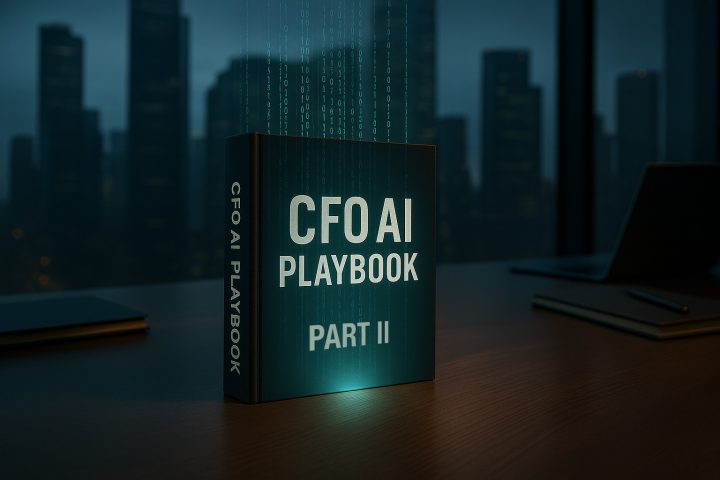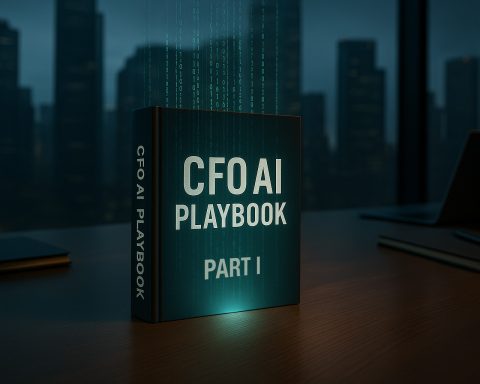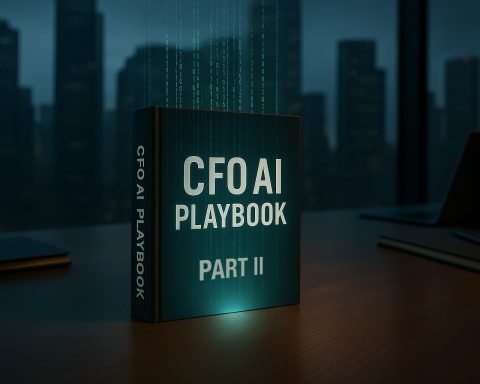When entrepreneurs set their sights on an exit, the caliber of talent they bring to the table can make or break the outcome. One of the earliest and most critical roles to engage is that of a seasoned Fractional CFO. Few business scenarios demand more strategic foresight and financial acumen than preparing for a transaction. For CFOs, it’s a rare opportunity where analysis, strategy, and influence converge; not only making the work intellectually engaging but often highly rewarding.
In a process where momentum is everything, and it’s often said that “time kills deals,” the CFO plays a pivotal role. Their mandate: organize financial data, surface insights, and ensure every detail is presented in a clear, investor-ready format. This foundation enables sophisticated buyers to move forward with confidence and allows the Investment Banker to run a structured, competitive process.
Well-prepared information reflects strong leadership. Transparency builds trust. And the smooth flow of materials keeps negotiations on track. With the right preparation and a trusted team of advisors, business owners can reduce risk, maintain momentum, and ultimately, maximize value.
Starting with the End in Mind
A well-executed exit begins long before any company presentations are drafted. Fractional CFOs are typically the first to inject strategic intent into the conversation. By posing a fundamental question, “What does a successful exit look like for you?”, they prompt alignment across stakeholders and reframe business decisions around long-term value creation.
A clear strategic focus enables CFOs to proactively identify and resolve factors that may undermine enterprise value well before engaging with the market. Whether the solution lies in optimizing pricing models, refining compensation structures, creating transferable processes, or implementing better cost controls, these improvements don’t just enhance financials; they increase the company’s attractiveness to potential acquirers. In this way, the Fractional CFO transcends traditional accounting and finance roles to become a driver of enterprise value.
Their contributions are both technical and strategic. They prepare audit-ready, GAAP-compliant financials suitable for Quality of Earnings (QOE) reviews. They construct forward-looking, scenario-based forecasts rooted in operational realities. And they assemble diligence materials in a manner that anticipates investor scrutiny. Perhaps most critically, they understand the internal landscape of the business, where information resides, how value is generated, and what metrics matter, making them indispensable during due diligence and financial storytelling.
Market Execution: The Role of the Investment Banker
Once the internal foundation is set, the Investment Banker brings the company to market. Their mandate is to transform financial and operational readiness into a compelling equity narrative, ensuring potential buyers not only understand the current performance but also the future potential.
This process goes far beyond sourcing a list of potential acquirers. Effective Investment Bankers relies on their deep experience in designing and managing a structured process: developing investment materials, qualifying buyers, executing confidentiality agreements, managing timelines, and coordinating communication. They cultivate competitive dynamics among bidders, which can materially impact the ultimate valuation and deal structure.
Investment Bankers are also vital in managing delicate phases of the transaction. During due diligence, Investment Bankers act as intermediaries, protecting the seller’s position, pacing disclosures, and maintaining deal momentum. Their ability to frame responses and control the narrative reduces execution risk and ensures that critical negotiations unfold on favorable terms.
Strategic Synergy: Turning Readiness into Results
What makes this partnership truly effective is the strategic synergy between the Fractional CFO and the Investment Banker. The CFO brings transparency, credibility, and operational insight, while the Investment Banker leverages these strengths to build buyer confidence and drive a favorable deal process. Investment Bankers manage information flow, address concerns, and sustain deal progression; serving as a buffer to allow for aligned, strategic responses. By fielding inquiries, the Investment Banker creates a strategic pause allowing time to formulate aligned and thoughtful responses. Unlike a CFO, who may feel compelled to respond immediately, the Investment Banker can defer with professionalism, “Let me check on that”, preserving flexibility and control in sensitive negotiations.
The CFO’s deep business insight and established trust within leadership help bridge communication gaps and preempt buyer issues. In close collaboration with Investment Bankers, the CFO’s involvement in early-stage preparation and post-close integration ensures a seamless transition. Their early engagement in exit planning further enhances strategic positioning and long-term value creation. For Fractional CFOs, these transactions are intellectually rewarding and professionally fulfilling, often leading to expanded scope and enhanced fee opportunities.
Conclusion: Premium Outcomes Through Strategic Partnership
Successful exits require more than favorable market conditions. It demands deliberate preparation and skilled execution. Engaging a Fractional CFO and an Investment Banker early can elevate exit outcomes by increasing deal certainty, optimizing valuation, and reducing execution risk. It is about the process, keeping things moving.
If you are exploring an exit or simply looking to position your business for future opportunities, now is the time to build the right team. Engaging early with experienced Investment Bankers provides valuable insight into how a strategic partnership can transform meticulous preparation into exceptional outcomes and lasting value.
*******************************************************
Kirk Otis — Founder & Managing Director, HawkEye Capital Partners
Middle‑market deal leader who makes M&A painless. Leveraging 30 years in investment banking, corporate development, and board governance — and his proprietary HawkEye Process — Kirk creates value, confidentiality, and timing to secure consistently superior outcomes for buyers and sellers.
Contact: in**@*******cp.com
Hedy Tiongco — Managing Partner, OxCrown
Architect of growth with over 20 years of experience leading strategy, M&A, and financial transformation. Hedy blends sharp analysis with hands‑on execution to steer complex M&A, corporate development, global scaling, and growth strategy. Her buy‑and‑build playbooks accelerate scale and sustain competitive advantage across industries.
Contact: in**@*****wn.com
























